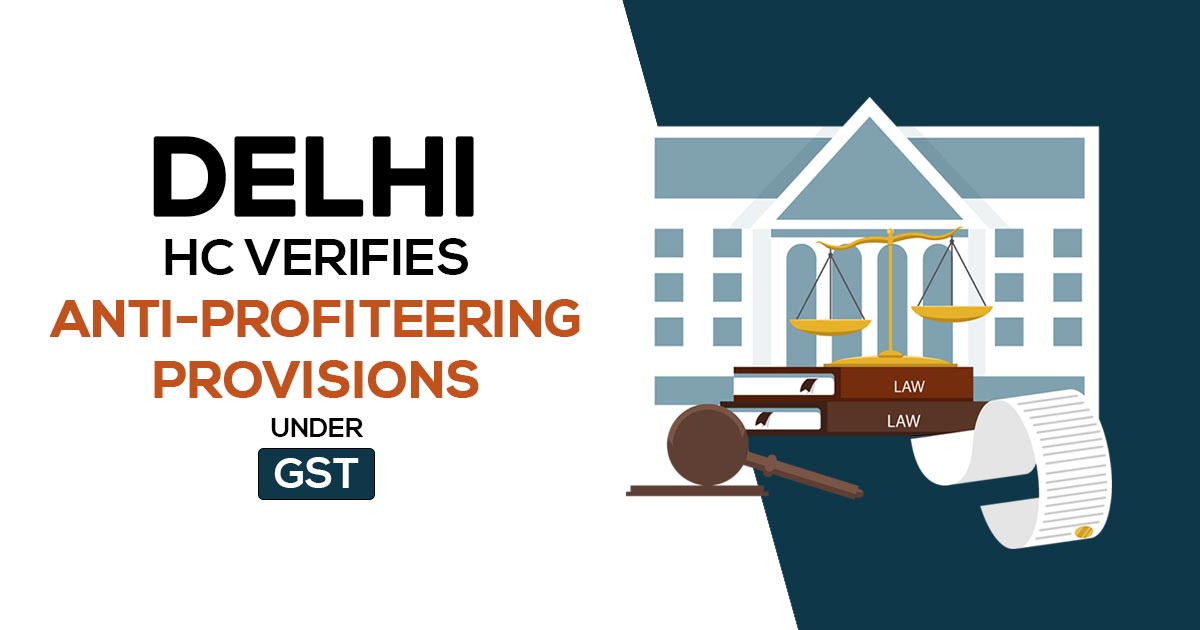
On Monday, the Delhi High Court affirmed the constitutional validity of the anti-profiteering provisions within the Goods and Services Tax (GST). Over 100 companies, including Hindustan Unilever, Patanjali, Jubilant Foodworks, and Phillips, had filed petitions challenging these provisions.
The court ruled that these provisions specifically address the necessity for a proportional reduction in prices when GST rates are lowered or due to input tax credit. Consequently, the court deemed these provisions to be in the public interest and aligned with the legislative authority granted under the Constitution.
The bench, led by acting Chief Justice Manmohan and Justice Dinesh Kumar Sharma, acknowledged potential challenges faced by companies, such as the possibility of price hikes due to cost escalation, imbalanced input tax credit (ITC), and the arbitrary exercise of power beyond jurisdiction by anti-profiteering bodies. The court emphasized that these issues would be evaluated based on factual evidence and numerical data in individual cases.
An appropriate remedy is to obtain such cases listed before the division bench for directions on February 8, said the court.
Subsequently, these issues will be scheduled for discussion, where considerations regarding jurisdiction, cost escalation, and imbalanced input tax credit (ITC) will be addressed individually by a stated tax expert who presented arguments on behalf of some companies involved in the case.
Companies contested the constitutional validity of the provisions, highlighting the absence of a specific formula for determining profiteering. The court concluded that establishing a fixed or mathematical formula for anti-profiteering determination is not feasible.
However, the court clarified the distribution mechanism for profiteered amounts among home buyers. It outlined that the benefits would be distributed based on per square foot, ensuring equal benefits for equal space provided to home buyers. Consequently, buyers would receive benefits proportional to the area of their houses.
Read Also: GST: Delhi HC Asks CCI for Prescribed Methodology Which Uses to Judge Quantum of Profiteering
The National Anti-Profiteering Authority (NAA) was established in November 2017 to ensure that companies pass on the benefits of the Input Tax Credit (ITC) and GST reduction to consumers through price reductions. In the wake of the introduction of GST, many countries experienced a significant uptick in inflation and commodity prices.
Initially constituted for a two-year term, the NAA’s tenure was subsequently extended multiple times. Since December 2022, the Competition Commission of India has been investigating complaints of profiteering against companies.
| Case Title | Reckitt Benckiser India Private Limited Vs Union of India |
| Citation | W.P.(C) 7743/2019 |
| Date | 30.09.2022 |
| Petitioner by | Mr. P. Chidambaram, Mr. R. Jawahar Lal, Mr. Siddharth Bawa, Mr. Anuj Garg, Mr. Mohit Sharma, Ms. Harshita, Mr.Amar Dave, Mr. Vikramaditya Bhaskar |
| Respondent by | Mr Zoheb Hossain, Sanjeev Menon, Mr Vivek Gurnani, Mr Kavish Garach, Ms Abhipriya, Mr Vivek Gaurav, Ms Sejal Aneja, Ms Manisha, Mr Asheesh Jain, Mr Gaurav Kumar, Mr Farman Ali, Mr Krishan Kumar |
| Delhi High Court | Read Order |